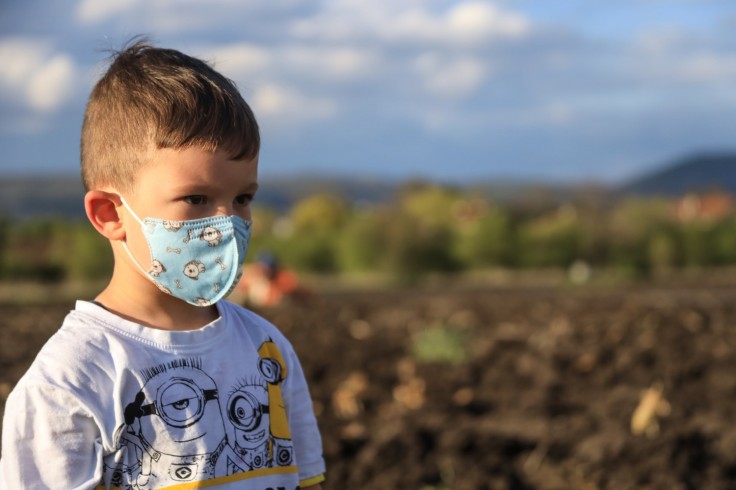
2020 is crazy for everybody, and parents are probably feeling it more than most. You have yourself to worry about, and also your children. One of the things you'll have to think about is whether you feel safe sending them back to school now that we've arrived at the fall season.
There are several things you'll need to consider very seriously as you try to determine whether you can send your kids back. Different parents may arrive at different conclusions, and there's nothing wrong with that.
Here are five pressing factors that will determine whether you send your kids back to a physical classroom this fall.
What Are Things Like Where You Are?
All good parents question whether it is safe to let their children go to school in the middle of a pandemic. It's impossible not to. However, it's not always the easiest question to answer.
Parents know the Covid-19 dangers. They know that:
190,000 Americans are dead
Children can contract the virus
Even if the virus doesn't affect them, they can bring it home and spread it to adults
The thing is, while it might feel safer in one part of the country, it may be completely different somewhere else. There is no uniformity as to how America is dealing with the virus.
Some states are resistant to mask-wearing and social distancing. In others, the virus rate seems to be dropping more every day.
That's going to make a difference in terms of whether you let your kids go back to school. If things seem to be under control, you'll probably feel better about the situation.
Do You Have Immunocompromised Individuals at Home?
Let' say for a moment that you're in a state that seems to be doing well fighting the coronavirus. You might want to let your kids go back to school. However:
You have an immunocompromised relative in your home
Immunocompromised means that the individual in question has a medical condition where they cannot fight back so well from something like Covid-19. Generally speaking, medical experts feel that if these individuals catch the coronavirus, then it can easily kill them.
If you have someone in your home like this, or you're like this yourself, you may need to keep the kids away from school for that reason. If you have an immunocompromised child, then you must keep them away too.
How Old Is Your Child?
Your child's age will also play a part in whether you send them back to school. Maybe you have a five-year-old who you were going to send off to kindergarten for the first time.
If so, then you'll probably think twice about sending them this year. For one thing, they're still quite young, and their immune system might not be all that strong yet.
At the same time, them missing the first year of school at age five is not the worst thing in the world. You do not have to fret about them falling behind if they haven't gotten far along in the educational process.
You can even do some activities at home that are similar to the ones the teacher might do with your child in class. It's true that your kid can't socialize with other children this way, and that might disappoint them, but missing a year at such an early age is by no means the worst thing in the world.
Are There Online Options Instead?
Almost all cities and states in the country, regardless of how bad the coronavirus is in your area, do have some online teaching options for your kids this fall. The classes might not be as rigorous as they'd get if they went in person, but it's not as though they'll have to sit at home twiddling their thumbs if you decide to keep them away.
Your kids might want to go back very badly. They might miss their friends and socializing with them. They probably don't want to fall behind either.
Alternatively, if your child does not like school very much, then they might love that you're keeping them home. In either case, they have to accept that you know what's best for them.
This is an extraordinary circumstance and not one that you could have predicted. They'll have to follow your lead. Ultimately, you are their parent and what you say goes.
What Are the Conditions Going to Be Like at the Local Schools?
You also might decide based in part on what local school boards, teachers, etc. say the conditions will be like. If teachers say that they're going to wear masks, and they require all students to wear them, then you'll probably be glad to hear that, and you might be willing to try sending your kids.
On the other hand, some politicians on both a state and national level have politicized mask-wearing. If you're in an area with no mask requirements, you should automatically keep your kids home.
Many school districts face overcrowding, so it will probably be almost impossible for your kids to stay six feet away from other students at all times when they're sitting in class or moving around in the hallways or cafeteria. If you know that your kid's school won't at least require masks and periodically sanitize surfaces, then it's simply not worth it to send them.
Even if you feel like they're young and it probably won't harm them, they can easily contract Covid-19 and bring it back to your home. Besides, while few children die from the virus, some still do. We do not really know enough about it yet to be cavalier: this is your child's life and your own life on the line.
Education matters and you don't want your child to fall behind. However, this is an unprecedented and uncertain situation. It's better to keep your child home and have them miss some algebra right now than to potentially risk their life.